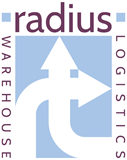If you’re just starting out or considering international trade as a pillar of your business, it’s likely you’ll have come across the term, ‘Bill of Lading’. There are so many essential documents and legal tick points you need to get through in order to successfully export or import goods from other countries. And this legal document is one of them. Read on to learn everything you need to know and ensure you have all the relevant information on hand before organising your cargo movement.
What is a Bill of Lading?
Used for all forms of cargo that are shipped by sea, a Bill of lading is a legal document that outlines the costs of delivery for a specified delivery of goods or services. Essentially, it is a receipt that is given to the supplier or person organising the shipment by the master of the ship. It is used as evidence that there is a contract agreed between the shipper and the carrier while also ensuring that the end receiver can check that a shipment is correct upon delivery. The Bill Of Lading passes hands once payment has been fully received for a delivery and transfers ownership of the shipment to the end-user.
What information is on a Bill of Lading?
The information presented on a Bill of Lading may vary from shipment to shipment. However, in general, it will provide:
- The shipper’s information including name and return address
- The consignee (end receiver or recipients) information including name and address
- The carriers information including business names and address
- A signature from the carrier to confirm receipt of the shipment
- The date the cargo was loaded onto a ship
- The port at which the cargo was loaded
- The destination port
- Full and detailed information about the goods being shipped, including whether or not they fall into a hazardous category.
- The agreed terms and conditions of the shipping, including who is responsible for the cargo and who is responsible for paying the shipment fees
There are a number of Bill Of Lading templates available online that can be used for your shipments. Alternatively, we recommend having an experienced freight forwarding company, such as our team at Radius Warehouse and Logistic Services, to take care of the creation and supply of this document. With over 20 years of experience, we’ll help ensure all relevant information is available and in order to speed up your cargo movements. Contact us today or request a quote via our website.



